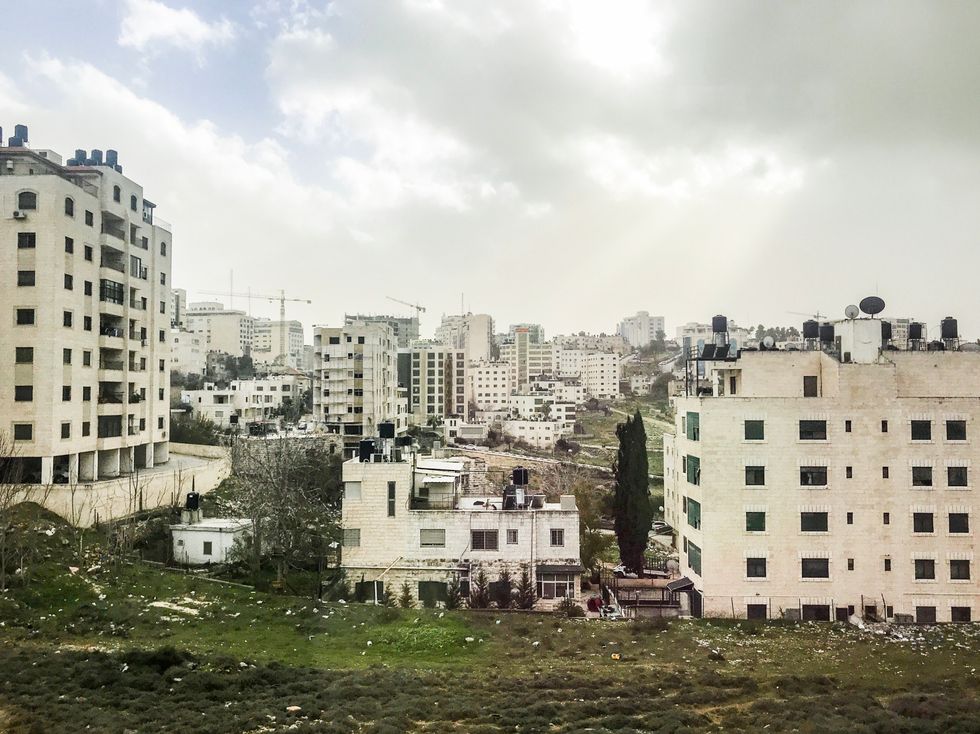Continuing on with Dr. Shikaki's discussion, we will be covering three issues in this section: borders, Jerusalem, and refugees.
The first issue is borders--and how Palestinians view them. Three years after the Oslo Accords, which were supposed to be a starting point for negotiations, Israel and Palestine had planned to meet again and solidify what the borders of the two regions actually would be.
The Oslo Accords happened in 1993, and the idea of Areas A, B, and C came out of it. The Area A/B/C concept was supposed to be temporary--transitional. It was a stepping stone for Palestinians to eventually get full control of all three areas and be able to slowly establish functioning governments and military rule in even Area C. However, this was not the case due to Israeli settlements that became commonplace in everywhere but Area A regions. Again, words versus actions--Palestinians saw Israel say one thing and do another.
There could, if both sides agreed, be territory swaps including equal amounts of land being exchanged. However, most Palestinians would never agree to a two-state solution unless the capital of Palestine could be East Jerusalem… which brings us into the second issue: Jerusalem.
While many Israelis want both West and East Jerusalem as the capital of Israel, Palestine has always seen East Jerusalem as its capital. Today, Palestinians have not been happy with American President Donald Trump's moving of the American Embassy from Tel Aviv into Jerusalem. If he were smart, he would have also created a American Embassy in Palestine, located in East Jerusalem. However, he did not do that… and he stirred the pot.
Moving on to the third issue: the refugee crisis! There is a distinction between the concept of "the Palestinian right of return" and the physical, realistic implementation of it. Theoretically, the Palestinian refugee has a right of return to Palestine proper, and there is no argument here against this concept. However, implementing this is a whole other issue. The majority of Palestinians are actually open to different options of implementation; rather than returning to "Palestine proper," which has a majority of Jews living in it today, Palestinians are willing to just be returned to the West Bank and/or Gaza Strip.
Here's where it gets a little confusing (as if it wasn't already confusing, ha). There is land in the West Bank that is public Palestinian land, and then there is land in the West Bank that is private. Private Palestinian land means that the land was actually owned by a Palestinian family or company.
Before the second intifada, the Palestinian majority said yes to Israelis living in land that was public--if Israelis honestly bought Palestinian public land from Palestine, it was okay for Israelis to live there. That is one type of "settlement." However, if the settlements were in private land--land that is owned by a Palestinian--it was seen as stealing. Those are illegal settlements. After the second intifada, though, the majority of Palestinians don't even want Israelis living on public land anymore.
Going back to the issue of trust, there is also a sizeable population of Arab-Israelis, or Arabs who live and work in Israel. They are the ones whose attitudes have not hardened as much over the last ten years. Today, about 80-90% of Arab-Israelis say that they can see and support a two-state solution. Over half of Arab-Israelis say they trust Israeli Jews.
What is the Jewish view on settlements? Ten years ago, 50-60% of Israeli Jews were willing to dismantle settlements. Today, over 50% of Israeli Jews say that any peaceful settlements should not be dismantled; rather, they should either stay as they are or be annexed to Israel.
The catch is this: Palestinians do not see that there have been any efforts to dismantle settlements by Israel. Yes, there was a so-called settlement freeze--a ten month period way back when. The caveat, though, was that during the ten months, there were still settlements in the Jerusalem area that continued to be created, and any ongoing settlement elsewhere was able to be completed. This "freeze" was a joke to Palestinians; to the, it felt like another form of deception.
In the next section, we will be talking about Hamas and the Gaza Strip.
- What's Going On In Aleppo And Why You Should Care ›
- I Asked 25 Individuals What They're Passionate About ›
- The Truth About Refugees ›
- The Syrian Refugee Crisis: A Violation Of Human Rights ›

















